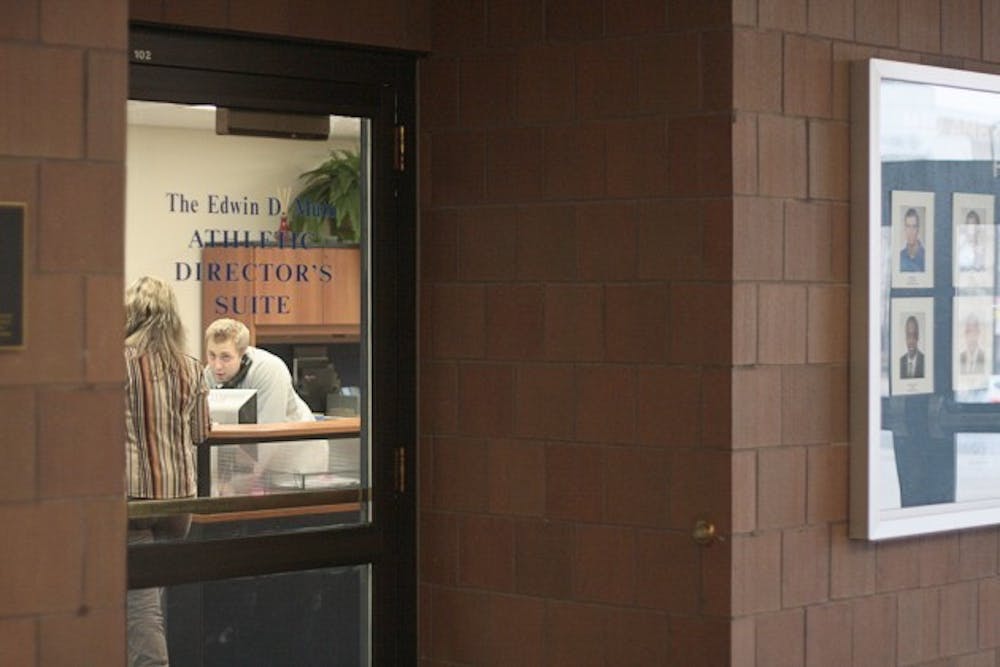On Tuesday, Career Services held a workshop explaining some of the advantages and disadvantages of entering the growing field of sports management and administration.
"There is probably nothing more exciting [than sports]," said Joe Meyer, a career planning and development assistant. "It's the original reality TV."
There are many ways to get into a career in sports. Even though only a select few are blessed with the talents to become professional athletes, Meyer explains that there are jobs everywhere.
"On the field, you can be a player or coach, but that's the hardest way to get there," Meyer said.
What many students may not know, Meyer explained, is that a majority of jobs are available from behind the scenes. Marketing, promotions, communications and sports reporting are only a few of the potential jobs readily available.
"There is a huge business in sports," Meyer said. "However, the more you get into sports, you find out that revenue is very top-heavy."
Dream jobs like being a general manager for the Yankees are far and few between, and there are only a handful of such prestigious positions. Like any athlete who endured the rise to the top of his or her sport, baby steps must be taken before the all-out sprint.
"The business in sports begins and ends with sales, " Meyer said.
According to Meyer, getting a foot in the door is the first step. No matter what profession a person decides to go into, having a previous connection to the job never hurts.
"Get experience early – it adds to your resume," Meyer said. "Volunteer and get internships."
Having a foot in the door can also help a potential candidate determine whether he or she needs to invest in a master's degree for a job. Many people are already qualified to obtain jobs, but don't realize it. Other degrees, like a master's in sports administration or management, aren't actually required, explains Meyer.
Meyer stressed that a job in sports is not a typical 9-to-5 job, and many entry-level jobs aren't well paid, either.
"I really don't know anyone who's worked in sports at any level that wasn't there outside of the normal Monday through Friday, nine to five," Meyer said. "The hours can be tough; you get beat down a lot."
However, if a student eats, breathes and drinks athletics, a sports career can be thirst quenching.
Meyer acknowledges that a sports career may have its advantages and perks, such as working for a professional team and receiving free tickets to events and games, but the monotonous tasks of the job can become dull.
"Sometimes when you're in it, you're like, ‘Enough of the games,'" Meyer said. "You get over-flooded with it and you're like, ‘Ok, one game is the next game. Is this really exciting anymore after going to so many?'"
Meyer explains that one way to fight the repetitiveness of a career in professional sports is to get into a career in college or amateur sports. While a job working for a school may not carry the same luster that a job with the Sabres offers, the variety of experiences in a more personal career can have its own unique advantages.
Meyer's own career started in professional sports with the Bills and eventually moved to college athletics.
Once Meyer left professional sports, he never looked back. The enjoyment of seeing students achieve their personal goals and the opportunity to focus on multiple tasks is what keeps him coming back.
"I was always a big fan of the smaller schools, because you knew that you were going to be focused on hockey [or] basketball … [there's] variety," Meyer said. "A lot of people don't like the multi-tasking it requires, but it's a lot of fun."
E-mail: features@ubspectrum.com
The wide world of sports

More
Comments




